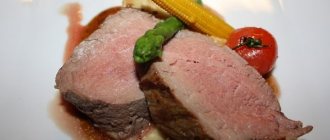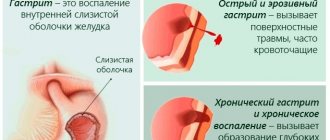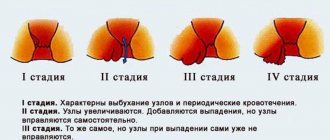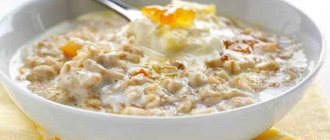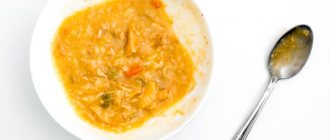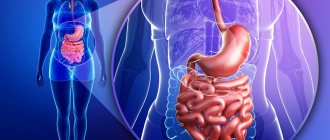Diet for ulcerative colitis promotes faster recovery. A properly composed menu reduces the risk of relapse of the disease, relieves pain and relieves many other unpleasant symptoms.
Ulcerative colitis is a chronic disease. It affects the mucous membrane of the colon. During the pathology, non-healing ulcers appear on the walls of the organ. As a result, a person experiences noticeable discomfort, which is accompanied by pain and bleeding. In the absence of timely treatment, the disease can acquire a malignant course.
Usually the pathology is hereditary. However, external factors also have a huge impact on the development of ulcerative colitis. This could be poor nutrition, bad habits, or advanced gastrointestinal diseases. The disease is progressive. If timely treatment is not started, colitis will quickly spread to all parts of the large intestine.
Most often, the disease is diagnosed in patients aged 20 to 35 years or in older people. Colitis is rare in childhood and adolescence. Among preschool children, boys are most often diagnosed with colitis. During adolescence, girls usually suffer from the pathology.
Why does colitis occur and how does it progress?
Colitis is most often caused by poor nutrition. Violation of the regime, consumption of junk food, and alcohol abuse do not have the best effect on the condition of the intestines. In addition, colitis can develop as a result of intestinal infection or helminthic infestation. Also, this disease often occurs when:
- long-term use of antibiotics and abuse of laxatives;
- surgical interventions or injuries in the abdominal area;
- food allergies;
- frequent stress.
It is worth noting that the course of colitis at the initial stage is not very pronounced. Unpleasant sensations are not permanent, but occur sporadically and can alternate with each other. This is why people often ignore unpleasant symptoms without seeking medical help. This is how colitis develops into a chronic form with periodic exacerbations. To normalize the condition, a healthy diet is necessary. In case of colitis during an exacerbation, food should be gentle.
Consequences of not following the diet
Proper nutrition in the treatment of colitis is essential, and non-compliance with nutritional rules and the presence of harmful foods can provoke the development of dangerous consequences. Patients will constantly experience exacerbations. In some cases, colitis can develop into an ulcerative form, which will lead to intestinal bleeding and the development of peritonitis.
List of references: https://sanatoriy-gorniy.ru/pitanie/pitanie-pri-khronicheskom-kolite/ https://www.wday.ru/krasota-zdorovie/encyclopedia-zdorovia/dieta-pri-kolite-kishechnika-s -zaporami-ili-diareey/ 100 recipes for colitis and enteritis. Tasty, healthy, soulful, healing. Irina Vecherskaya 2020 https://abc-medicina.com/gastrojenterologija/kolit https://aif.ru/health/food/1214988 https://gubkin-crb.belzdrav.ru/personal/pitanie-pri-zabolevaniyakh -kishechnika.php?type=special https://rokdc.ru/index.php/information-i/61-gastroenterologiya/513-yazvennyj-kolit-simptomy-prichiny-lechenie Intestinal health. Larisa Abrikosova 2020 Notes from the author of the article, based on personal experience. This material is purely subjective and is not a guide to action. Only a qualified specialist can determine an accurate diagnosis and prescribe treatment.
Main symptoms
Acute or chronic colitis is accompanied by a number of unpleasant symptoms. The most common ones include the following:
- pain that is localized in the side of the abdomen (usually intensifies before defecation or after eating harmful foods);
- bloating, accompanied by a feeling of fullness;
- frequent belching and flatulence;
- nausea and vomiting;
- bowel dysfunction;
- mucous and bloody discharge during bowel movements;
- bitterness in the mouth in the morning;
- accompanying symptoms such as headache and physical weakness.
Pin the principles of proper nutrition
A diet for colitis requires compliance with some mandatory rules. During the period of exacerbation, as well as for the purpose of its prevention, you should be guided by the following principles:
- you need to eat little and often (there should be about 6 meals in total during the day);
- food must be chewed thoroughly (for each piece there should be at least 30 jaw movements);
- Every time before a meal, it is advisable to eat a small peeled apple;
- refusal of solid and dry foods;
- It is unacceptable to eat foods that are too hot or too cold;
- copious fluid intake.
Diet No. 4
What is the correct diet for colitis during an exacerbation? Experts in the field of gastroenterology recommend sticking to a special menu. It is also known as Diet No. 4. It is characterized by the following features:
| Characteristic | Description |
| Indications | Chronic or acute form of colitis |
| Target | Normalization of digestion, suppression of inflammation, inhibition of fermentation and putrefactive processes. |
| Mechanism | Reducing the amount of carbohydrates and fats (while maintaining normal protein content). Limiting chemical and thermal irritation of the mucous membranes of the stomach and intestines. The diet is based on the consumption of liquid dishes, steamed or boiled in water. |
| Chemical composition |
|
| Number of meals | 5-6 |
General characteristics and associated causes
Colitis is an inflammation of the intestinal mucosa.
The word "Colitis" is translated from Greek as "kolon" (large intestine) and "itis" (inflammatory process).
Colitis is a disorder of the body in which the lining of the colon begins to rot and become inflamed.
People on average between 25 and 60 years of age have the highest susceptibility to this disorder.
Formally, every second patient with a disease of the digestive tract has colitis. Colitis can occur in acute or chronic form.
The main reason for the formation of colitis is an increase in pathogenic (negative) bacteria in the colon. They interfere with the natural process of colon functioning and digestion of food debris, causing irritation and inflammation of the intestinal walls. The appearance of pathogenic microflora can be caused by:
- irregular and unsystematic nutrition,
- constant consumption of fried and spicy foods,
- decrease in the general level of immunity,
- transmission of certain infectious diseases,
- treatment with antibiotics,
- infection with intestinal infections,
- infection with worms,
- entry of toxic substances into the body,
- food allergies.
Recommended Products
People suffering from chronic or acute colitis are recommended to follow the so-called diet No. 4. It includes food that not only does not harm the intestines, but also helps maintain its functional state. Thus, a diet for colitis during an exacerbation involves consuming the following products:
- dairy products;
- slimy soups based on low-fat broth;
- white meat and fish, steamed or boiled;
- rice, semolina or oatmeal porridge cooked in water;
- jelly and jellies based on fruits and berries;
- boiled eggs or omelet;
- rosehip decoction;
- fresh fruits and vegetables in grated form;
- hard cheeses (unsalted);
- biscuits;
- cinnamon as a seasoning.
Lists of allowed and prohibited foods
Let's tell you what you can eat if you have colitis. The following foods can be consumed by a patient suffering from inflammation of the large intestine:
- Dried or stale wheat bread, dietary cookies. It is recommended to eat baked goods that are stale, but in no case fresh.
- Pies are allowed in small quantities. They should not be made from butter dough.
- Soups in fish or meat broth with boiled cereals or vegetables.
- Boiled porridge from cereals.
- Vermicelli casseroles with vegetables.
- Poultry and rabbit meat, veal, steamed cutlets and meatballs.
- Boiled fish (low-fat types).
- Zucchini puree, broccoli and cauliflower.
- Pumpkin and carrot dishes.
- Sweet berries or fruits.
- Mild cheeses, sauces and gravies made from sour cream or berries, herbs.
- Dairy products.
- Natural teas and coffee, compotes, fruit drinks.
And now about what you can’t eat if you have ulcerative colitis. There are certain foods that are prohibited for this disease. Here is a list of such foods:
- All dishes are based on rich and fatty broths.
- Millet cereal porridge.
- All fried foods, as well as fatty meats or poultry. The same applies to fried and fatty fish.
- Onion garlic.
- Radishes, turnips.
- Mushrooms.
- All sour berries and fruits.
- All pickles, spices, as well as horseradish and mustard.
- Alcoholic drinks.
Among other things, it is extremely important to maintain a proper diet. Overeating is strictly prohibited, as is prolonged fasting. It is better to eat more often and in small portions.
Prohibited Products
A number of restrictions characterize the diet for colitis during an exacerbation. The list of products prohibited for consumption is as follows:
- sausage and frankfurters;
- onions and garlic, as well as hot spices and herbs;
- apricots and plums in any form;
- black bread;
- fresh bread and other flour products (especially baked goods);
- borsch;
- milk soups;
- alcohol;
- pickled and smoked products;
- whole milk;
- carbonated drinks;
- fried foods;
- coffee and chocolate;
- pasta;
- rich broths;
- fatty fish and meats;
- pearl barley;
- peas, beans and other legumes;
- honey;
- concentrated juices.
Nuances of the menu for chronic colitis
What diet is most effective for chronic colitis? For this disease, nutrition must be special. It is important to consume plenty of vitamins that will ensure normal bowel function. Under no circumstances should you abuse enemas and laxatives. Everything can be adjusted with the help of nutrition.
It is advisable to eat 6-7 times a day. The intestines should not be irritated by dry and solid foods. It is recommended to pay attention to porridge. In case of severe exacerbation, the volume of carbohydrates should not exceed 300 grams per day. Diets during the acute period and subsiding differ significantly.
With nonspecific ulcerative colitis, complete exclusion of milk and dairy products from the patient’s diet may well lead to a complete or partial cure of the disease. Therefore, it is worth holding off on consuming fermented milk products. If the colitis is chronic, then protein stool will help. To do this, you need to consume no more than 150 grams of protein per day. The patient’s diet should not contain sweets and flour products. Vegetables and fruits are taken pureed or boiled. Mineral water is an excellent addition to any diet. For example, Essentuki.
Food should not contain irritating seasonings. The diet should include sufficiently high-calorie, but at the same time easily digestible foods. Food must be steamed. All smoked meats should be excluded. If functional diarrhea is observed, it is better to give preference to animal protein products. But whole milk should be excluded. Plant foods should be heat treated. For spastic constipation, the same amount of animal protein and fiber is consumed. With atonic constipation there is a lot of fiber. You should pay attention to fruit and vegetable juices, salads, boiled vegetables, wholemeal or bran bread. Based on these data, a diet is selected. Diets No. 4 and 4a have gained particular popularity.
Approximate menu for the day
The most important point of treatment is the diet for colitis during an exacerbation. Meals should be balanced and light. The approximate menu for the day is as follows:
- for breakfast you need to eat oatmeal with water and cottage cheese (both dishes are ground), and also drink unsweetened tea;
- followed by a snack of dried blueberries;
- for lunch it is recommended to eat light chicken broth with semolina, steamed meatballs, as well as rice porridge with water and jelly;
- dinner consists of a steamed omelette, grated buckwheat porridge and tea;
- A couple of hours before bedtime, you can drink fruit or oatmeal jelly.
Diet depending on the type of colitis
The diet for colitis during an exacerbation largely depends on what symptoms accompany the disease. So, based on the manifestations of the disease, nutrition may be as follows:
| Disease | Nutritional Features |
| Ulcerative colitis | The basis of the diet should be protein foods. It is worth paying attention to fish, cottage cheese, chicken, as well as soft-boiled eggs. Fats are consumed in limited quantities. |
| Colitis with constipation | The emphasis should be on fermented milk products. Solid foods need to be ground or crushed. It is acceptable to eat lightly roasted dishes. |
| Colitis with diarrhea | To normalize intestinal function, it is recommended to eat dried bread. The basis of the diet is boiled meat and fish. Fried and hard-boiled eggs are strictly prohibited. You should completely avoid fatty foods. |
| Spastic colitis | It is accompanied by pain, and therefore it is important to eat food that will not irritate the intestines. You should give preference to pureed soups and boiled porridges. Meat and fish should be cooked exclusively by steaming. |
| Catarrhal colitis | For the first 2-3 days of the diet, it is permissible to drink only herbal infusions and still mineral water. Next, you need to eat in small portions, gradually increasing the number of meals. Avoid milk, legumes and smoked foods. |
| Atrophic colitis | It is worth giving preference to products that do not contain coarse fiber. |
In what cases is its number assigned?
Ulcerative colitis is an inflammatory disease of the colon and rectum, which is accompanied by frequent bleeding.
It involves a disruption of metabolic processes, as absorption deteriorates, protein loss increases, and anemia often appears.
The diet that will be indicated is determined by the stage of the disease . If there is an exacerbation and a person is in the hospital in the first couple of days, the doctor may prescribe therapeutic fasting.
Next, during the week, diet No. 4 is shown, and after that less strict menus are shown: diet 4b and 4c. Each transition must be accompanied by a doctor.
If the pathology worsens, you need to reduce the amount of food in the diet . This is achieved by limiting fats and carbohydrates, but the amount of protein should be sufficient.
Diet number 4 involves a reduced energy value and is prescribed for a short period while the patient adheres to bed rest.
Diet 4b, which is switched to after the elimination of acute manifestations , is less strict and is called colitis-strained. It can be observed for a long period, and then the patient is transferred to diet number 4c.
Ulcerative colitis of the intestines and colon is associated with depletion of the body , therefore sometimes the energy value of diet foods increases.
The disease can also be accompanied by allergies, impaired water-salt metabolism, diarrhea or constipation. This will also affect the menu.
For colitis with diarrhea, while following a diet, you need to limit fats and prevent dehydration.
For constipation, one-day kefir is added to the diet . If you have allergies, you need to limit carbohydrates, and if you have intestinal bleeding, add calcium-enriched foods.
For chronic colitis and accompanying chronic gastritis with reduced secretion, diet No. 2, including foods that stimulate secretion, may be indicated.
Diet for colitis during an exacerbation: nutrition and recipes
Having dealt with the list of products recommended for consumption, it is important to combine them into healthy, and most importantly, tasty dishes. The diet for colitis during an exacerbation should be based on soft, enveloping and light textures. We decided to present the recipes in the form of a table.
| Dishes | Ingredients | Preparation |
| Oatmeal jelly |
| Pour water over the oatmeal, mix well and leave overnight. In the morning, strain and put the resulting liquid on the fire. Heat until the mixture thickens to jelly. Drink half a glass before meals. |
| Boiled meat cutlets |
| First, boil the breast and rice. While the porridge is cooling, the meat needs to be twisted three times in a meat grinder. Mix everything, then form cutlets from the resulting mass. The dish is steamed. |
| Curd soufflé |
| The cottage cheese must be rubbed through a sieve several times, then mixed with semolina, sugar and yolk. Beat the whites into a strong foam and gently fold into the cottage cheese. Place the mixture in a greased pan and steam until ready. |
| Broth with semolina |
| Add vegetables, salt and herbs to the concentrated meat broth and cook for a quarter of an hour. Strain the cooled liquid and dilute with water in equal proportions. Put the broth back on the fire and bring to a boil. Carefully add semolina and cook until done. |
| Liver pudding |
| Grind the washed, film-free liver in a meat grinder. Grate the boiled carrots. Combine liver, carrots, egg yolk, butter, milk powder and salt. Beat the egg whites separately and then combine them with the liver. Pour the mixture into a mold and steam. |
Nutrition when your condition improves
A strict diet for intestinal colitis during an exacerbation period contributes to a fairly rapid improvement in the condition. As a result, the diet gradually begins to expand.
So, it is permissible to eat not only boiled and steamed, but also baked dishes (be sure to remove the crust). The following can be gradually added to the list of permitted products:
- ripe tomatoes and potatoes in limited quantities;
- products made from lean dough (buns, pies with cottage cheese, fruit, eggs or meat);
- pasta as an additive to soups;
- ripe fruits and berries, peeled and pitted;
- weak coffee;
- sweets such as marshmallows, marshmallows, marmalade, preserves and jams.
As the condition improves, it is recommended to expand the diet by consuming small quantities of sausages, vegetable oil and other forbidden foods. This is not systematic, but is only aimed at ensuring that the intestines are ready to process any food.
Duration of adherence to the regime.
Such a diet can last about two to four days, and when diarrhea and cramps disappear, boiled vegetables (cauliflower, carrots, zucchini) are gradually introduced into the diet.
Then the diet is gradually expanded to the next stage:
- porridges from various cereals, except wheat and pearl barley;
- broths with meatballs made from lean meats with the addition of onions;
- boiled fish, jellied low-fat varieties;
- vegetables - potatoes, pumpkin, peas (mashed);
- desserts – marshmallows, marmalade, jam, soufflé;
- berries - strawberries, raspberries, but not more than 100 g. in a day;
- milk;
- from spices - bay leaf, parsley and dill;
- butter 60 gr. in a day;
- biscuits, white bread.
In the future, the diet is expanded and brought to the generally accepted diet. The food is not ground, but the food must still be steamed, boiled, or baked.
Thanks to such a system, you can improve the overall well-being of the body and bring it back to normal in a matter of days.
Prevention of colitis
The best prevention of gastrointestinal diseases is a proper diet. If you have colitis during an exacerbation, it is important to eat healthy foods. But it is better to prevent the problem than to treat it later. That is why it is recommended to always adhere to the principles of proper nutrition. It is also worth remembering that nervous tension and stress can lead to a sharp deterioration in the condition. This is why it is important to avoid negative emotions and bad mood.
Forget about bad habits (smoking and alcohol). Take antiviral drugs and antibiotics strictly as prescribed by the doctor, while simultaneously taking medications that protect the stomach and intestines.
